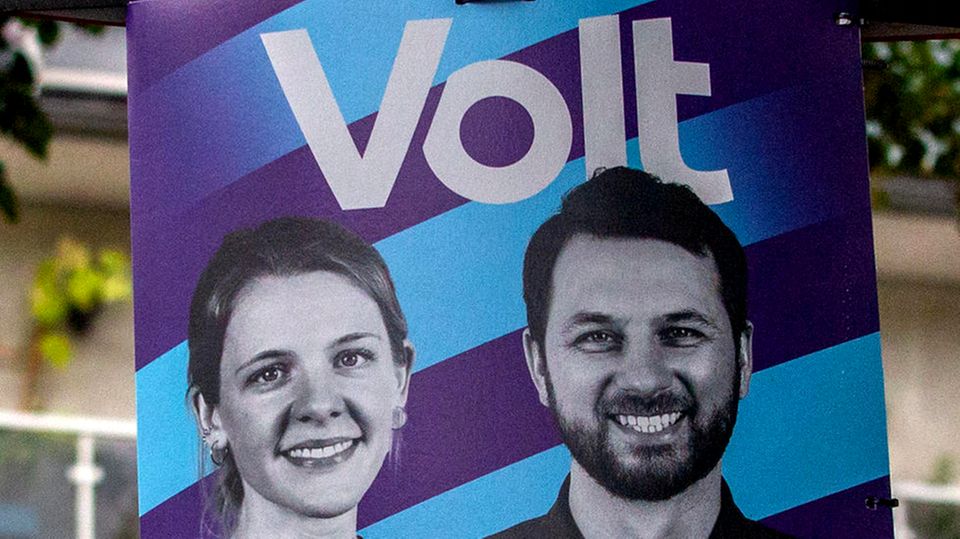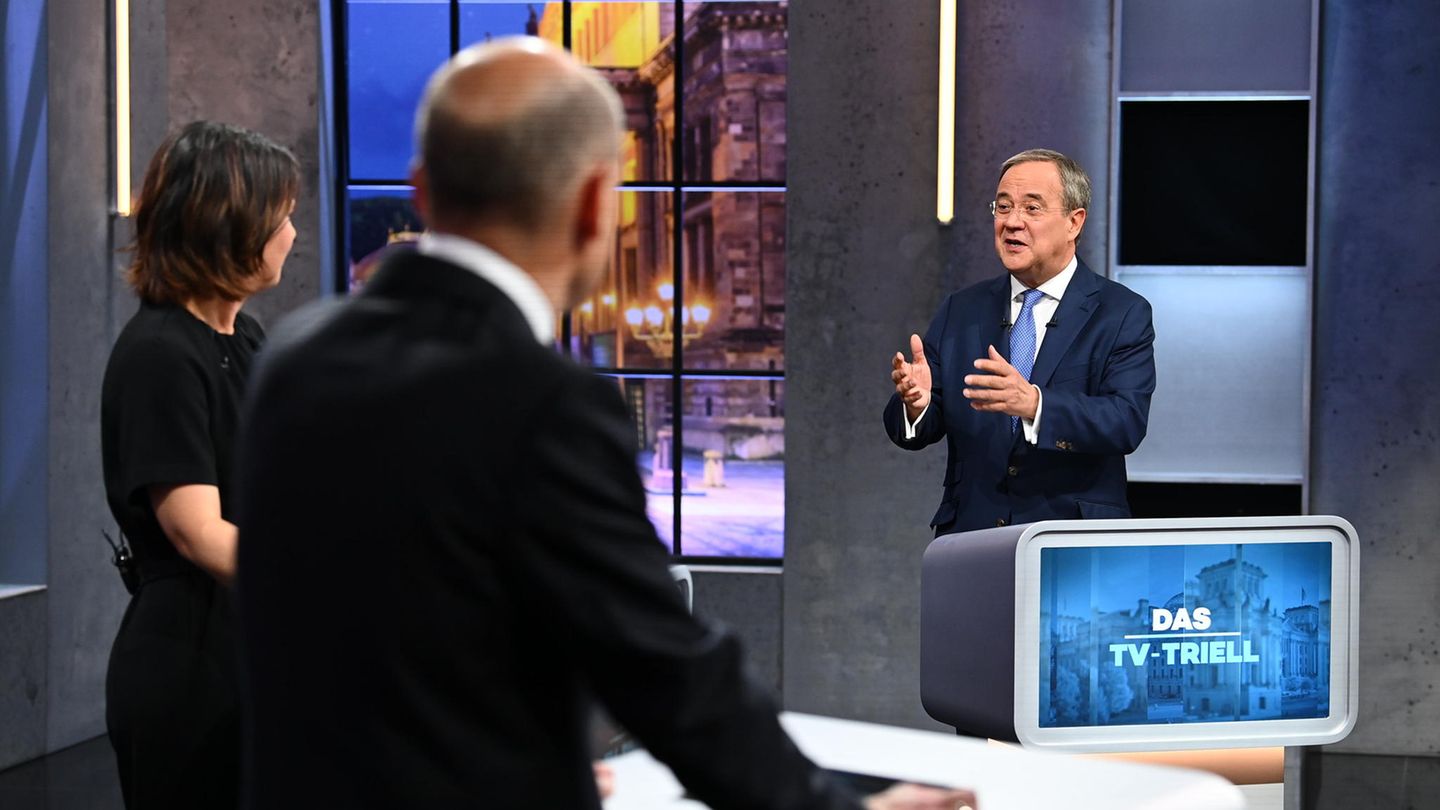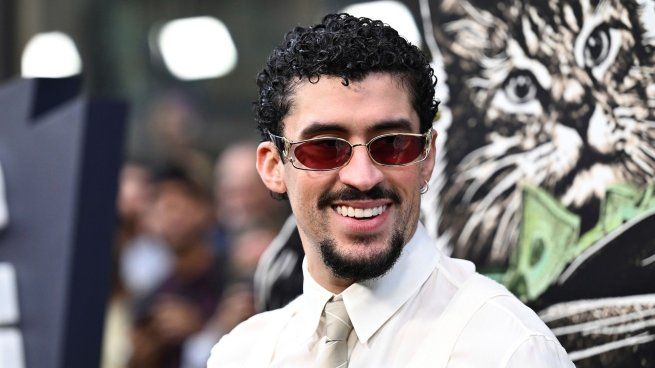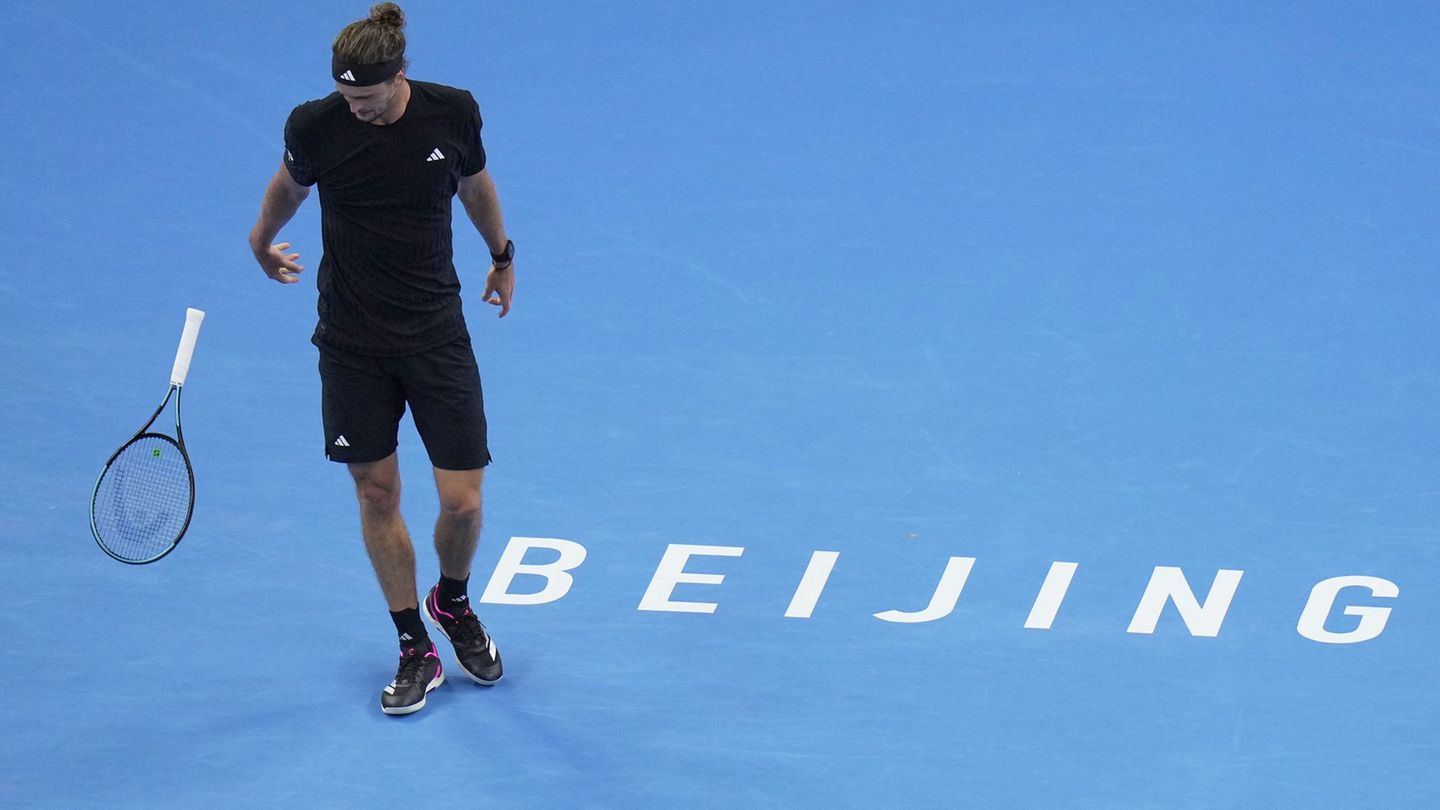To analyse
In the last triell before the federal election, Olaf Scholz and Annalena Baerbock shoot at Armin Laschet. He doesn’t seem like he still believes in his victory.
From Simone Deckner
The last triall is over – and thus also the last chance to be able to directly compare the three most promising applicants for the successor to Angela Merkel. And even if it was often blasphemed on Twitter that you need another triall about as urgently as a root canal treatment at the dentist, decision-making aids are urgently needed: According to surveys, one in four still does not know who to vote for on September 26th . The moderators Linda Zervakis and Claudia von Brauchitsch made it clear that they were explicitly interested in the undecided in their questioning of Olaf Scholz (SPD), Armin Laschet (CDU / CSU) and Annalena Baerbock, which was broadcast live on Sunday on Sat.1, ProSieben and cable one was transmitted.
But: who was the most convincing? Were there any surprises? What remains of this last media summit of the Chancellor candidates?
Three insights that we take away from this triall:
1. Annalena Baerbock and Olaf Scholz shoot each other at Armin Laschet
It was about halfway through the Trielli when Annalena Baerbock shook her head in disbelief: “I wonder what’s going on with you, Mr. Laschet?”, She asked, looking genuinely flabbergasted. Previously, Laschet had defended his “no” to the minimum wage of 12 euros, he had described child poverty as “terrible”, but declared Hartz IV sanctions to be indispensable and declared that he would rather rely on the “creativity” of automobile companies instead of bans and an early phase-out of coal-fired power generation. Baerbock had heard enough. The Greens attacked him that he “stood for a policy from the 1990s”.
And she wasn’t alone in that. Olaf Scholz also attacked Laschet sharply: When Scholz spoke of the fact that it should not be, that one cannot live from a full-time job in Germany and again campaigned for an increase in the minimum wage, Laschet assumed he was mere election campaign promises. Scholz reacted almost emotionally for his circumstances: “Mr. Laschet, that is perhaps the difference between you and me: I am not doing this because the election is currently in progress. I have been making this demand for a few years. My concern is the dignity of citizens and citizens, that is certainly what sets us apart on this issue. ”
Scholz was noticeably reluctant to criticize the Greens, instead emphasizing similarities, for example on the subject of care, where both parties not only demand better pay but also more staff.
2. Armin Laschet has no more ace up his sleeve
All observers agreed beforehand: if CDU candidate Armin Laschet still wants to turn the trend, he has to score points in the last triell against Olaf Scholz. By which? Almost doesn’t matter. But the 60-year-old looked nervous from the start and often argued in a cumbersome way. Laschet spoke the longest overall, but often only repeated familiar things. For example on the subject of poverty: “Most of the time, poverty goes hand in hand with a lack of work,” he said of the obvious. It is “bad when parents have no work”. Laschet’s recipe: more jobs. The fact that a single mother said in a single play that she hardly sees her daughter anymore because she has to work 50 hours a week in two jobs to make ends meet did not seem to be a contradiction for him.
Laschet (“We need a strong economy”) only scored points on the subject of where all the money for the planned changes, for example in climate policy, should come from. But already when it came to the subject of nursing, he bumped again: “I want, uh … as Federal Chancellor, to make nursing a topic … the big issue for the next few years.” Convincing is different.
3. You can do politics with Mickey Mouse notebooks
Linda Zervakis created the surprise effect of the evening: As the child of a kiosk owner, she used to sit at the source for Mickey Mouse books. The deforestation of the rainforest was already a topic in the colorful leaflet in 1993. Zervakis zu Laschet: “Apparently not that many comic books are read in the CDU, or why are we still not much further ahead 30 years later?” Laschet countered that at that time, Klaus Töpfer, a CDU politician, “advanced the climate issue like no other”. Baerbock: “Yes, but your party did not learn the lessons from it!” Then it was over for the Greens with the preliminary coalition skirmish and they attacked the GroKo and also Olaf Scholz. “The next federal government must be a climate government. We are no longer allowed to do things by halves when it comes to climate protection.”
“Scholz didn’t make a mistake”
In the subsequent Triell analysis, journalist Düzen Tekkal also saw the green one in front: “There was a winner: Baerbock. She was on fire!” In the Forsa survey, however, the Green landed in last place (25 percent) behind Laschet (27 percent) and Scholz (42 percent). “Scholz did not make a mistake”, so the conclusion of the international campaign advisor Julius van de Laar, Laschet, however, did not have the urgently needed “momentum”.

If none of this helped, was Jenke von Wilmsdorff. The man, who became known through his self-experiments, quarreled after the triell: “It didn’t convince me. All candidates are involved in scandals. I want someone I can trust blindly.” The moderator Marlene Lufen advised him not to have unrealistic expectations: “We are looking for the best possible.” Columnist Jan Fleischhauer, on the other hand, complained that Olaf Scholz had not explicitly spoken out against a coalition with the left-wing party. Moderator Claudia von Brauchitsch had already smugly commented on the pictures of the three candidates after the triumph: “They are really happy that this is over.”
David William is a talented author who has made a name for himself in the world of writing. He is a professional author who writes on a wide range of topics, from general interest to opinion news. David is currently working as a writer at 24 hours worlds where he brings his unique perspective and in-depth research to his articles, making them both informative and engaging.




